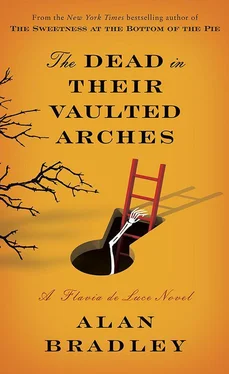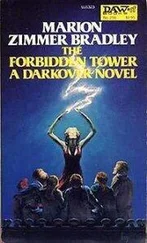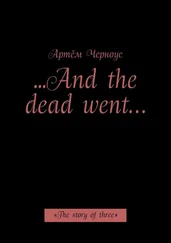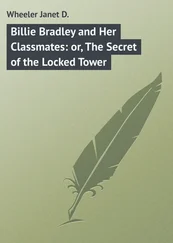To my surprise, one of the suited women turned out to be Father’s sister, Aunt Felicity. She hugged Feely, hugged Daffy, hugged me, and then without a word took up her station beside Father.
At an order, the two columns marched smartly towards the head of the train, as the large door in the luggage van slid open.
It was difficult, in the bright daylight, to make out anything in the dim depths of the van’s interior. All I could see at first was what seemed to be a dozen white gloves dancing suspended in the darkness.
And then gently, almost tenderly, a wooden box was handed out to the double column of waiting men, who shouldered it and stood motionless for a moment, like wooden soldiers staring straight ahead into the sunshine.
I couldn’t take my eyes off the thing.
It was a coffin which, once clear of the shadows of the luggage van, gleamed cruelly in the harsh sunlight.
In it was Harriet. Harriet .
My mother.
TWO
WHAT DID I THINK? How did I feel?
I wish I knew.
Sadness, perhaps, that our hopes were dashed forever? Relief that Harriet had come home at last?
It should have been dull black, her coffin. It should have had frosty silver fittings, with covered urns and cherubs with downcast eyes.
But it did not. It was of rich oak, polished to such an obscene brilliance that it hurt my eyes. I found that I could not look at the thing.
Oddly enough, the scene which popped into my mind was that one at the end of Mrs. Nesbit’s novel The Railway Children , in which Bobbie, on the station platform, flings herself into the arms of her wrongfully imprisoned daddy.
But there was to be no such tender ending for me, or, for that matter, for Father or Feely or Daffy, either. No, there was to be no such happy conclusion.
I glanced quickly at Father, as if he might give me a clue, but he, too, stood frozen in his own private glacier, beyond all grief and beyond all expression, as the coffin was draped with a Union Jack.
Alf Mullet snapped a sharp salute and held it for a very long time.
Daffy gave my ribs a dig with her elbow and pointed with the faintest inclination of her chin.
At the south end of the platform, a rather stout old gentleman in a dark suit was standing apart from the others. I recognized him instantly.
As the bearers moved slowly away from the train, bent under their sad burden, he removed his black hat in respect and lowered it to his side.
It was Winston Churchill.
Whatever could have brought the former Prime Minister to Bishop’s Lacey?
He stood there alone, watching in the deadly hush as my mother was carried to the open doors of a motor hearse, which had appeared in uncanny silence as if from nowhere.
Churchill watched as the coffin, preceded by an officer with a drawn sword, was borne gently past Father, past Feely, past Daffy, and past me, then placed himself shoulder to shoulder with Father.
“She was England, damn it,” he growled.
As if awakening from a dream, Father’s eyes lifted, came to rest, and focused on Churchill’s face.
After a very long time, he said, “She was more than that, Prime Minister.”
Churchill nodded and seized Father’s elbow. “We can ill afford to lose a de Luce, Haviland,” he said quietly.
What did he mean by that?
For a moment, they stood there together in the old sunshine, these two seemingly defeated men, brothers in something far beyond me: something I could not even begin to imagine.
Then, having shaken hands with Father, with Feely, with Daffy, and even with Aunt Felicity, Mr. Churchill came over to where I was standing, a little apart from the others.
“And have you, also, acquired a taste for pheasant sandwiches, young lady?”
Those words! Those exact words!
I had heard them before! No—not heard them— seen them!
The roots of my hair were suddenly standing on tiptoe.
Churchill’s blue eyes were piercing, as if he were staring into my soul.
What did he mean? What on earth was he suggesting? What was he expecting me to say?
I’m afraid I blushed. It was all I could manage.
Mr. Churchill stared intently into my face, taking my hand and giving it a gentle squeeze with his remarkably long fingers.
“Yes,” he said at last, almost as if to himself, “yes, I do believe you have.”
And with that, he turned and walked away from me along the platform, acknowledging, with solemn nods to the left and to the right, the recognition of the villagers as he slowly made his way through them to his waiting car.
Although he had been out of office for ages, there was still a remarkable air of greatness about this plump little man with his bulldog face and the startling stare of his great blue eyes.
Daffy was already whispering in my ear. “What did he say?” she asked.
“He said that he was sorry,” I lied. I didn’t know why, but I knew that it was the thing to do. “Just that he was sorry.”
Daffy gave me that squinty evil look of hers.
How could it be, I wondered, that with our mother lying dead under our very noses, two sisters could be almost at each other’s throats over a simple fib? It seemed ridiculous, but it was happening. I can only suppose that that’s the way life is.
And death.
What I did know for certain was that I needed to get home, that I needed to be locked in the silence of my own room.
Father was busy shaking hands with all the people who wanted to give him their condolences. The very air was alive with the reptilian hissing of their Ss and the little animal squeals of their Ys.
“Sorry, Colonel de Luce … sorry … sorry,” they were telling him, over and over again, each in his or her own turn. It’s a wonder Father didn’t go mad on the spot.
Could no one think of anything original to say?
Daffy once told me that there are approximately half a million words in the English language. With so many to choose from, you’d think that just one person, at least, could find something more original than that stupid word “sorry.”
That’s what I was thinking when a tall man in a coat too long and much too heavy for such a lovely day detached himself from the crowd on the platform and made directly for me.
“Miss de Luce?” he asked, in a surprisingly gentle voice.
I was not accustomed to being addressed as “Miss de Luce.” It was a name usually reserved for Daffy or Feely—or for Aunt Felicity.
“I am Flavia de Luce,” I said. “And you are?”
It was a response Dogger had taught me to give automatically when spoken to by strangers. I glanced over and saw Dogger hovering solicitously at Father’s side.
“A friend,” the man said. “Just a friend—of the family. I need to talk to you.”
“I’m sorry,” I said, taking a step backwards. “I’m—”
“Please. It’s vitally important.”
Vitally ? Anyone who used the word “vitally” in everyday conversation could hardly be a villain.
“Well …” I said, wavering.
“Tell your father that the Gamekeeper is in jeopardy. He’ll understand. I must speak to him. Tell him that the Nide is under—”
The man’s eyes widened suddenly in puzzlement—or was it horror?—as he looked over my shoulder. What—or whom—had he seen?
“Come along, Flavia. You’re keeping everyone waiting.”
It was Feely. My sister gave the stranger a tight, polite smile as she put a hand on my shoulder and gave it an unnecessarily hard tug.
“Wait,” I said, ducking to one side and breaking away from her grip. “I’ll be there in a minute.”
Dogger was already holding open the door of Harriet’s old Rolls-Royce Phantom II, which he had parked as close to the platform as he possibly could. Father was halfway to the car, shuffling alarmingly, his head bowed.
Читать дальше












